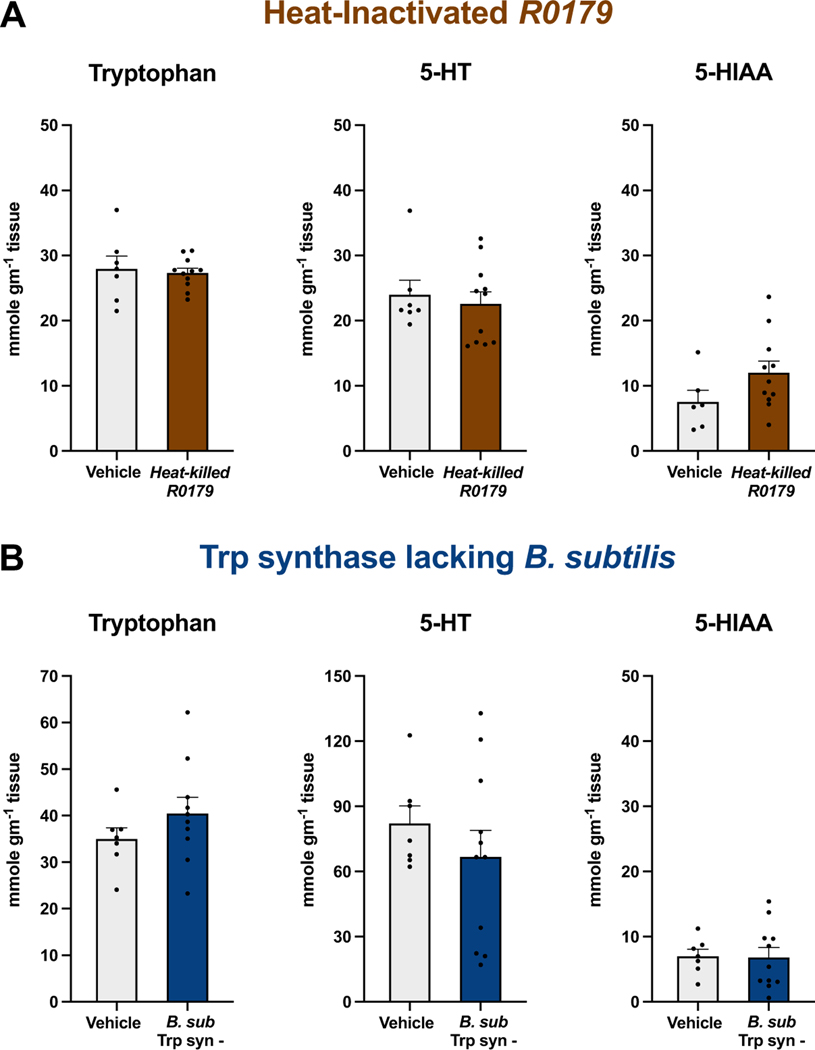Figure 2. Treatment with either heat-inactivated B. subtilis R0179 or with a non-Trp-synthesizing strain of B. subtilis does not alter colonic metabolite levels.
(A) To determine whether the B. subtilis R0179-induced increases in colonic Trp and 5-HIAA levels were due to the live nature of the administered bacteria, mice were treated for one week with heat-inactivated B. subtilis R0179. Analysis of distal colon tissue via HPLC revealed no significant differences in colonic Trp, 5-HT, or 5-HIAA between mice treated with heat-inactivated B. subtilis R0179 (n=11) and vehicle control (n=7). (B) To examine whether the altered metabolite levels from B. subtilis R0179 treatment were due to the Trp-synthesizing property of this bacterial strain, mice were treated for one week with B. subtilis 1A2 (B. sub Trp syn-), a strain that lacks tryptophan synthase, the key enzyme in the synthesis of Trp from indole. Mice that received this non-Trp-synthesizing strain (n=11) displayed no significant differences in colonic Trp, 5-HT, or 5-HIAA compared to vehicle-treated mice (n=7). Data are shown as mean ± SEM. Unpaired Student’s t-test.

